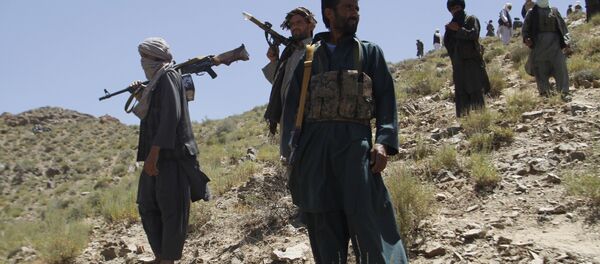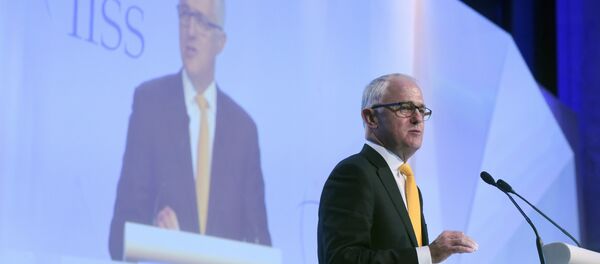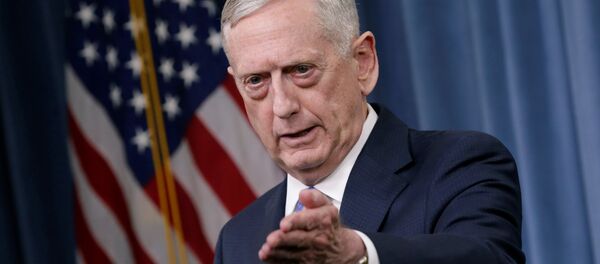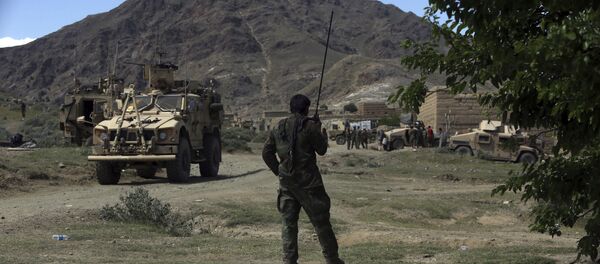The US is aghast that Russia has taken the lead in organizing the Moscow peace process for Afghanistan, which has already seen three meetings hosted in the Russian capital involving all of the war-torn country’s regional stakeholders.
Granted, there’s still a lot of work that needs to be done before this framework can yield anything resembling tangible results, but it’s nevertheless a constructive step in the right direction and presents a multipolar alternative to the previously American-dominated initiatives on this issue.
Importantly, Russia’s policy has recently evolved to the point where Moscow has come to regard the Taliban as an indispensable party to reaching a political solution to the War on Afghanistan, and this is largely due to the group’s effective anti-terrorist fight against Daesh.
Correspondingly, Russia has also been engaged in a fast-moving and comprehensive rapprochement with Pakistan during this time as well, motivated by the shared threat that Daesh’s activities in Afghanistan pose to both Great Powers.
Pakistan is more directly affected by this stemming from the fact that it borders Afghanistan and that terrorists there could be exploited by Islamabad’s adversaries to wage the Hybrid War on CPEC, but Russia is also at risk because any large-scale destabilization of its CSTO allies in Central Asia could draw it into a new military conflict and also generate uncontrollable waves of “Weapons of Mass Migration” which could crash into the Russian heartland.
There’s no better way to simultaneously complicate the security situation for both Russia and Pakistan than to destabilize the situation in Afghanistan, though the unintended blowback of this could inevitably be the further strengthening and possible expansion of the unfolding rapprochement between both sides in response.
Regardless of the possibly counterproductive consequences, the US “deep state” seems to have made up its mind to dispatch more soldiers to Afghanistan in order to bring this about, which could have the effect of intensifying the Taliban-Kabul conflict and preventing both sides from pooling their efforts together to defeat Daesh, to say nothing of advancing a political solution to their long-running war.
Furthermore, Trump distrusts his “deep state” to the point of being suspicious of practically all of his appointees, including his own National Security Advisor General H. R. McMaster according to reports. This senior administration figure had apparently been lobbying the President to authorize more troops to Afghanistan, but Politico writes that this was in vain because a “sh*t show” recently ensued which saw Trump dramatically rebuking McMaster by declining to deploy more soldiers and humiliatingly ordering the General’s proposal back to the drawing board.
It’s not known with any degree of absolute certainty why he made this decision, but it’s likely that the aforementioned domestic political considerations and “deep state” distrust played a guiding role, as well as the influence of his Chief Strategist Steve Bannon.
Reports circulated earlier this month that the former Breitbart executive is urging Trump to “outsource” the war to private military contractors (PMCs, also known as mercenaries) such as those under the control of his friend and infamous Blackwater founder Erik Prince.
The idea behind this proposal is that swapping uniformed US troops with PMCs will allow Trump to disingenuously make the case that he’s drawing down America’s conventional involvement in the War on Afghanistan and therefore win political points at home, all the while silently expanding its informal footprint through more mercenaries, many of whom are former US military personnel anyhow.
US military casualties – whether uniformed or private – will probably become a more frequent occurrence in Afghanistan if Trump has his way in prying the country’s gargantuan untapped mineral reserves from the Taliban.
The New York Times reported earlier this week about how the President is now interested in the estimated $1 trillion of resources lying under Afghanistan’s soil, a sizeable chunk of which is presently under the Taliban’s control and consists of the rare earth minerals that China presently has a monopoly on.
These metals are indispensable to modern-day civilian electronics such as cell phones and military equipment like precision-guided missiles, so there’s clearly a strategic motivation for the US to dominate the extraction of Afghan minerals in order to either deny this resource to its competitors or control their access to it.
The resultant strategy that’s coming into play is one in which the US wants to push the Taliban out of its resource-rich areas, extract and export the rare earth minerals under the soil there, and ensure sustainable security for this entire operation, with the point of contention within the administration coming down to whether it should be uniformed US soldiers or private mercenaries that fight the Taliban.
The “deep state” wants the Pentagon to be in charge of this because it would guarantee that billions of tax-payer dollars continue pouring into their Afghan slush fund, which is notoriously known to be full of waste and corruption, because the pecuniary advantages to be reaped from PMCs are considerably limited to much fewer individuals such as Erik Prince and Stephen Feinberg (the owner of the DynCorp PMC), both of whom are regarded as Trump’s advisors.
In order to push their case that the military should be in charge of this ultra-profitable operation, the “deep state” concocted the fake news conspiracy theory that “Russia is arming the Taliban” in order to “play the Russia card” in pressuring Trump to side with the Pentagon as opposed to the PMCs.
The $1 trillion mineral bonanza that’s made Trump all of a sudden interested in Afghanistan is too big of a potential prize for the billionaire businessman to pass up, and he knows that the US won’t be able to extract its envied mineral resources as long as the Taliban retains control of the territory above them.
Therefore, it’s expected that the US will attempt in one way or another – whether through the Pentagon and/or PMCs – to go on the offensive against the Taliban, possibly by having its soldiers and/or mercenaries play a decisive “Lead From Behind” role in using Kabul’s fighters as cannon fodder to this effect. The anticipated escalation of the War on Afghanistan and the inevitable window of opportunity that Daesh will see in all of this are bound to negatively impact on the security situation in the surrounding states, but it will also make it all the more important that Russia and Pakistan take their strategic cooperation to the next level in formulating a joint response.
The views expressed in this article are solely those of the author and do not necessarily reflect the official position of Sputnik.







